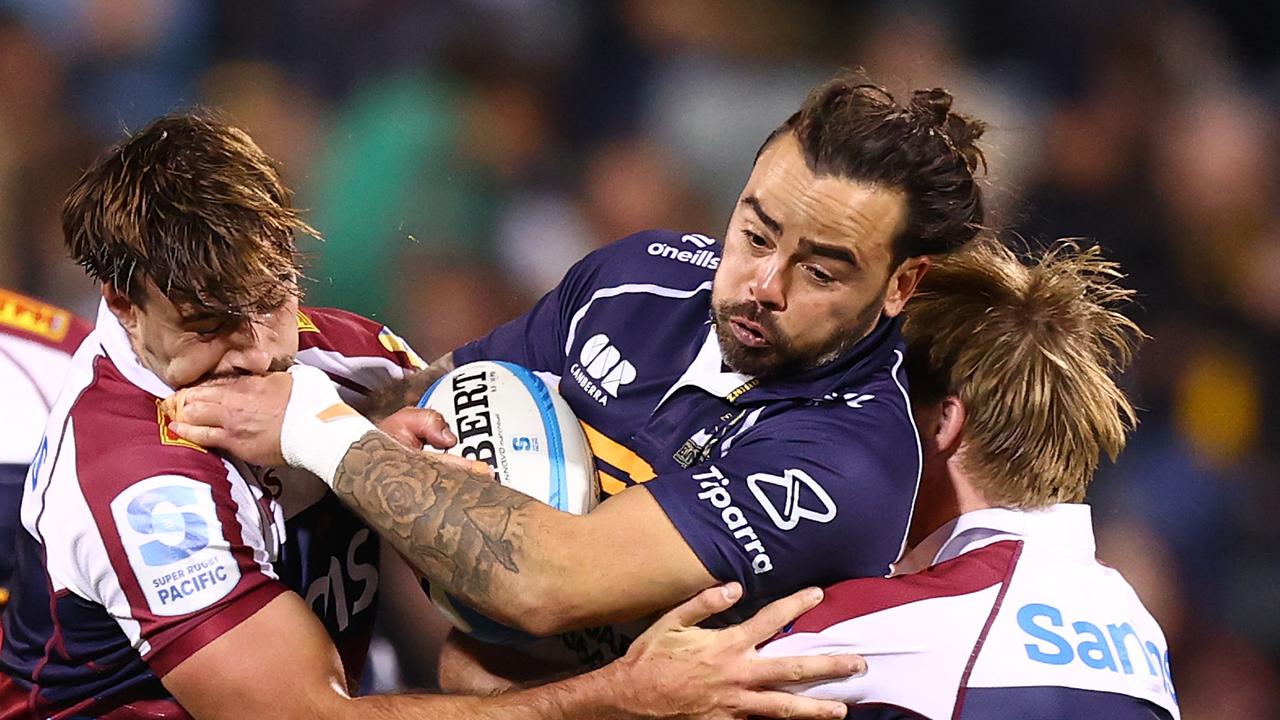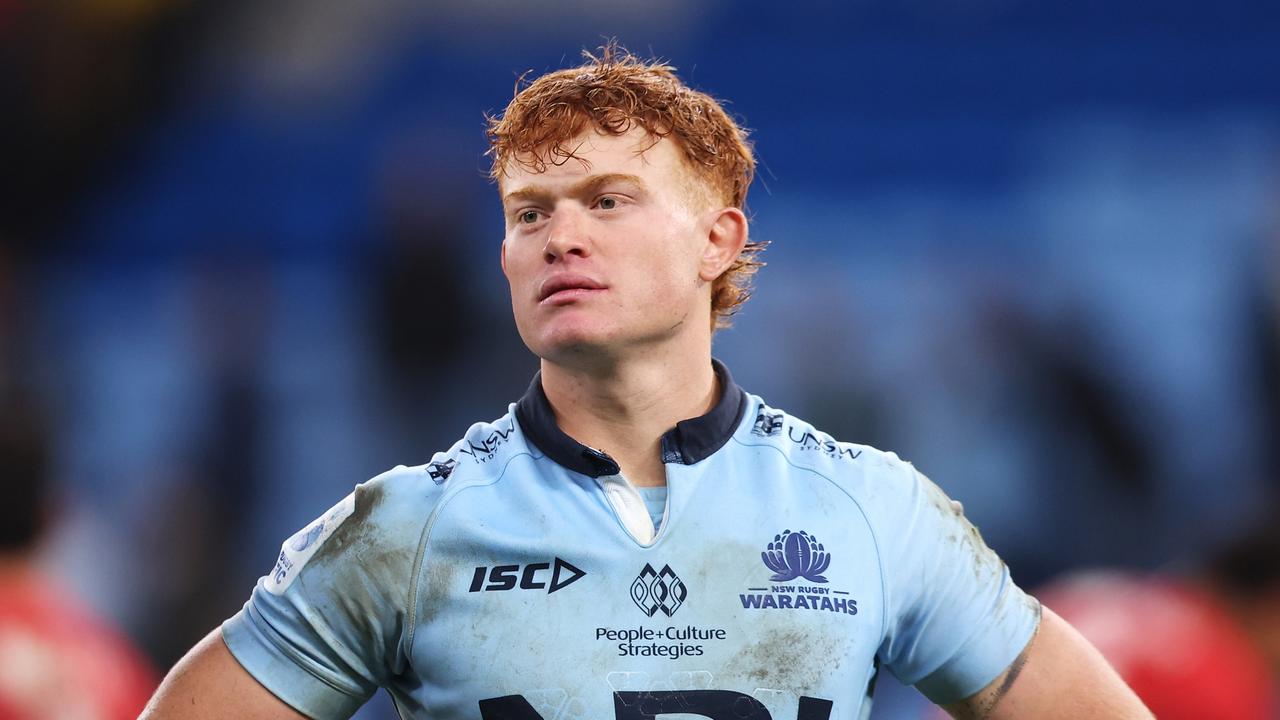John Howard, Peter Cosgrove, John Eales headline advisory board to oversee Australia’s Rugby World Cup 2027 bid
John Howard, Peter Cosgrove, Elizabeth Gaines ... new RA chairman Hamish McLennan isn’t mucking around with his high-powered advisory board to oversee Australia’s 2027 Rugby World Cup bid.
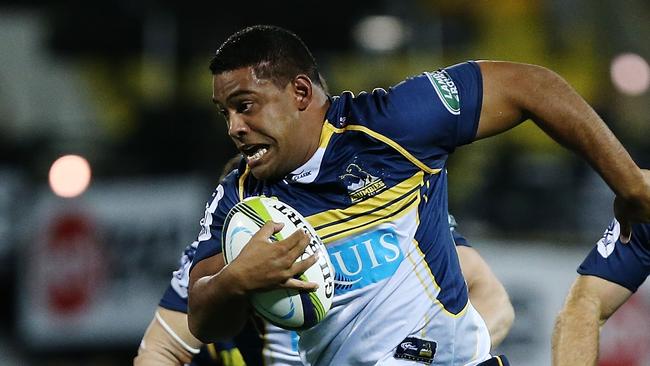
Super Rugby
Don't miss out on the headlines from Super Rugby. Followed categories will be added to My News.
- Summer of rugby: February could host Bledisloe Tests
- Latest Wallaby defector clears path for NRL star
Hamish McLennan has marked his first day as Rugby Australia chairman by announcing a high-powered advisory board headed by News Corp director Rod Eddington to oversee Australia’s bid to host the 2027 Rugby World Cup.
Rugby union has been in the wars in recent years, but McLennan wasted little time in demonstrating its ability to tap into the top end of town by assembling a seven-person advisory board that includes a former prime minister, John Howard; a former governor-general, Peter Cosgrove; and the most successful Wallabies captain of all time, John Eales.
Intriguingly, the committee also includes the CEO of the Fortescue Metals Group, Elizabeth Gaines. Her presence is further evidence of the growing thaw in the relationship between Fortescue non-executive chairman Andrew Forrest, the Western Force owner, and Rugby Australia.
Super Rugby returns! Watch every game of Super Rugby Aotearoa and Super Rugby AU Live & On-Demand on Kayo. New to Kayo? Get your 14-day free trial & start streaming instantly
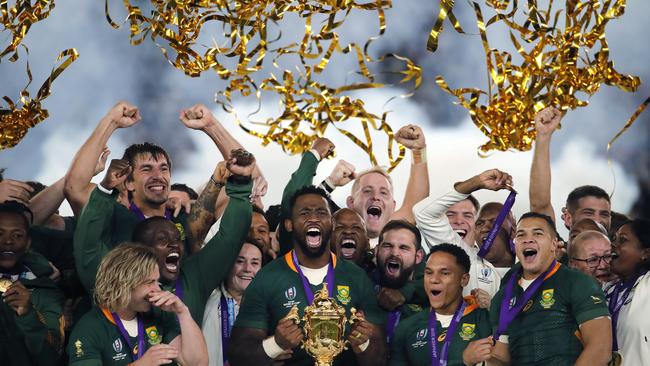
That was not, however, the reason Eddington wanted her on the board.
“I’ll tell you why I want her … she is a very successful chief executive of one of Australia’s leading companies, Fortescue,” Eddington said.
“She is west coast-based so I wanted a bit of geographic diversity and she brings that to the table as well.”
Gaines insisted she was delighted to have been asked.
“Hosting the Rugby World Cup in 2027 will further bolster Australia’s strong position on the world sporting stage, bringing considerable benefits across the entire economy and I’m honoured to be invited to join the advisory board charged with leading our bid to secure this outstanding opportunity,” she said.
McLennan said last month after being confirmed as RA’s next chairman that he intended making the 2027 World Cup bid one of his key priorities, and he proved that by turning to his friend of the past 25 years to head up the campaign.
Eddington, a West Australian by birth, a Victorian by adoption and a rugby fan from his days as a Rhodes Scholar at Oxford, believes the 2027 World Cup can serve as “a light on the hill” for the game in these troubled times.
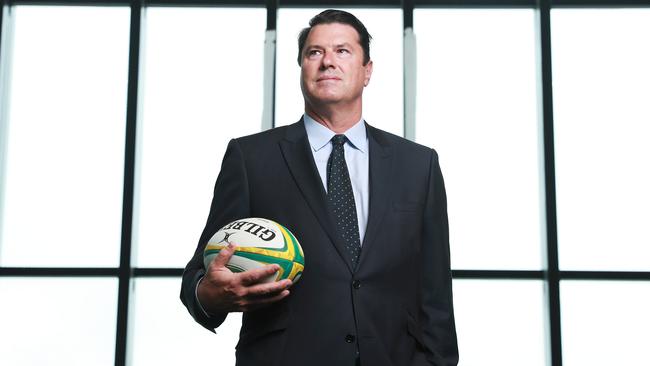
“I see that as a challenge because the worst thing we could do is to take it for granted that we are going to get it,” Eddington said.
The last two World Cups have been held in the northern hemisphere, in Britain in 2015 and Japan last year, with the 2023 tournament to be staged in France.
The expectation is that the 2027 tournament is almost certain to come to the southern hemisphere and SANZAAR, the body that controls southern hemisphere rugby, has already determined that Australia is its preferred — and indeed only — candidate.
No other rivals have emerged at this point but World Rugby politics is a notoriously tricky affair — note the difficulties in locking in a global calendar — and after spending 12 years as chairman of the Victorian Major Events Company, Eddington knows from hard experience how even the best-laid plans and the strongest bids can come unstuck.
He only has to look back on the circumstances surrounding the awarding of the next World Cup to realise how things can go wrong.
“It’s early days but, at the very beginning, my view from 30,000 feet is that we have to guard against complacency,” he said.
“I am very conscious that the French will be hosting it in 2023 and everyone expected South Africa to win that year and they didn’t. If it is ours to lose, then we have to make sure that we don’t lose it. I know having been involved in lots of bids for lots of different sorts of events over a long period of time (and) sometimes something can come out of left field which costs you.”
That said, he believes Australia’s proven record of having staged multiple major events — including two previous Rugby World Cups in 1987 (as co-hosts) and 2003 — will help deliver the required outcome.
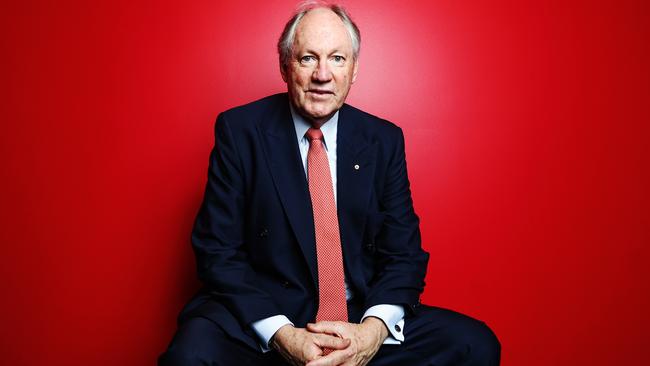
“Our job is very simple — to make the case that Australia is the best country to host the 2027 World Cup, that we have the facilities, we have the people who run the stadia and all the things around that and we have the people who will support it and will be very welcoming to our visitors.”
McLennan formally took over at 10.05am on Monday as outgoing chairman Paul McLean exited his final Rugby Australia board meeting, having delivered on his three key promises – to achieve sign-off on the 2019 financial report, to secure a broadcast deal for the remainder of this year and to organise a return-to-play date for Australia’s Super Rugby competition – July 3.
But there is still much for McLennan to achieve.
The broadcast deal for the 2021-25 cycle is still to be negotiated yet before that can happen he must determine what next year’s competition will look like. And that could require some heartbreaking decisions to either cut some existing Super Rugby franchises or merge them.
Super spicy as rule tweaks aim to deliver entertainment
Super Time, goal line drop outs, and red card replacements are among seven new laws to be introduced as Super Rugby Australia tries to lure fans back to the game.
Aussie Super teams will get a preview of two of the rules this weekend, with Super Rugby Aotearoa, which kicks off on Saturday in Dunedin, also embracing change.
The two rules that both competitions will introduce are 10 minutes extra time to decide a draw - to be called Super Time in Australia - and the ability to replace a red-carded player after 20 minutes.
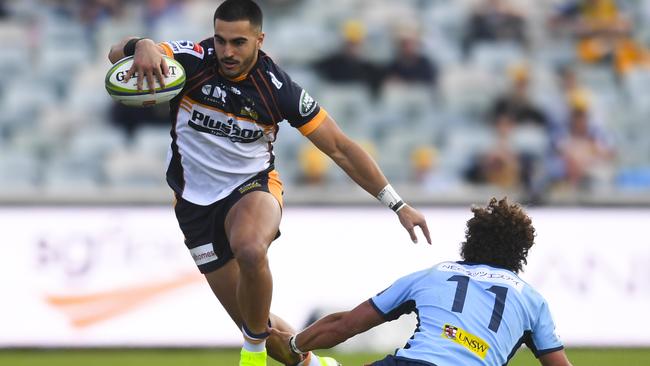
Following criticism about the lack of time the ball is in play, referees in both countries will also be cracking down on policing the breakdown, limiting the number of scrum resets and being on the lookout for cynical play.
Super Rugby AU will also borrow from NRL, with dropouts taken from the tryline instead of the 22 to encourage more short attacking kick options near the line. They will also tweak league’s 40/20 kick rule to be a 50/22 and 22/50 and eliminate marks in the 22.
Wallabies prop Scott Sio backed the changes, but said forwards may need to improve their fitness with the game set to speed up.
“You’ve always got to spice it up when you’re trying something new, add a bit of variety,” Sio said.
“And it gives the viewership something new to watch; hopefully some more exciting footy in the attacking halves, players trying something new ... hopefully we see some pretty skilful and exciting footy.
“You might have to get a tad fitter and at my age you tend to go the other way, that’s where the game’s probably going just generally around the world.
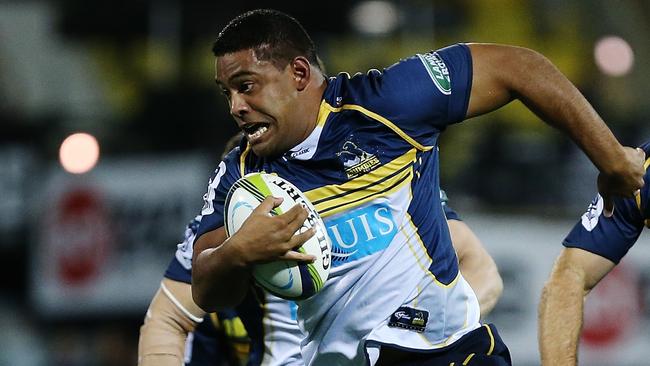
“(The trend appears to be to) speed the game up, having a good balance between attacking footy and set piece.”
The law variations were developed and agreed upon last month by a 24-strong group of coaches, players, referees and administrators.
Rugby Australia director of rugby Scott Johnson, who co-ordinated the working party, said they hoped to make the game more entertaining, while still preserving the integrity of the game.
He hoped the law changes would enhance the skills of the players.
“Throughout the process we stuck to the principle that whatever we changed, the game still had to be rugby, and nothing could compromise the Wallabies’ preparation for Test rugby,” Johnson said.
“In fact, I believe the changes we have implemented will broaden and enhance the capabilities of our players.”
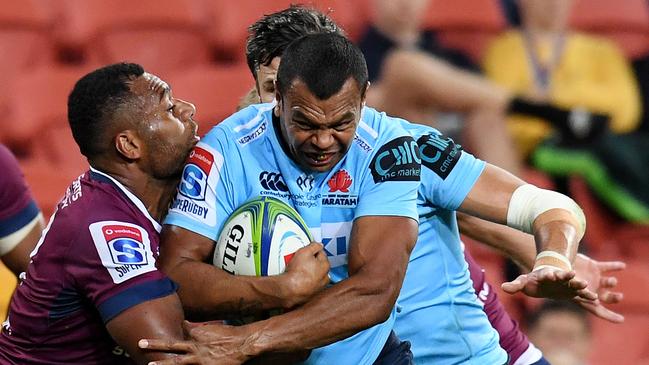
Super Rugby AU will get under way on July 3 when Queensland Reds host NSW Waratahs at Brisbane’s Suncorp Stadium.
SOME OF THE SEVEN LAW CHANGES FOR SUPER RUGBY AU
When an attacking player carrying the ball is held up in the in-goal or knocks the ball on, play will restart with a goalline drop-out rather than a 5m scrum.
A red carded player can be replaced after 20 minutes rather than the team playing one short.
A kick from within the defending team’s 50m area that goes into touch in the opposition’s 22m area having first bounced in the field of play, will result in a lineout throw to the kicking team rather than the defending team.
There will be two five-minute periods of extra time in the event of a drawn game after regulation time. First points scored wins the match as compared previously to a drawn match after 80 minutes.


